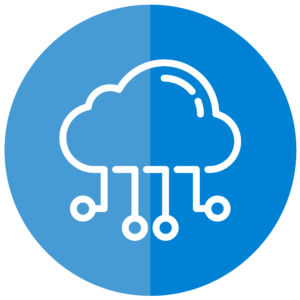A technological shift is about to occur in Africa, using blockchain technology is in an opportunity to significantly alter its infrastructure. Inefficiencies plague conventional systems in several regions of the continent. Elevated expenses and little openness. By utilizing decentralized infrastructure enabled by blockchain, governments, Companies and communities may move past outdated approaches and embrace more inclusive, robust frameworks. This change is about building a blockchain network that promotes trust, security, and autonomous governance at all levels, not just about eliminating middlemen.
Blockchain application development is at the center of this shift. It makes it possible to provide specialized answers to Africa’s particular problems. Distributed ledger technologies, for instance, can ensure that property rights are securely documented, reduce fraud, and simplify land registry operations.
Blockchain Transparency: A Powerful Tool Against Corruption
Voting, identification verification, and social welfare payments are just a few of the public services that smart contracts can automate. In industries where centralized systems frequently fail, these transparent and unchangeable blockchain transactions aid in lowering corruption and inefficiency. Local developers are bolstering more accessible, auditable, and equitable digital infrastructure as they create decentralized apps. The growth of the cryptocurrency market in Africa highlights the ways in which bitcoin adoption and crypto exchanges are already changing the financial landscape.
Exchanges: Connecting Africa’s Financial Present to Its Decentralized Future
Cryptocurrency is being used by many Africans, particularly the underbanked and unbanked, for cross-border payments, savings, and remittances as crypto market continues to expand .By leveraging cryptocurrency it can avoid high transaction fees by trading directly amongst peers blockchain transactions or by converting money to digital assets through a cryptocurrency exchange. These exchanges serve as vital links between the decentralized future and conventional finance.
Breaking Centralized Bottlenecks in Public Services
Slow verification process, fractured databases, corruption, and personal paperwork are continuing challenges with centralized systems in many African nations. In industries like recognizing management, licensing, and social advantages distribution, these bottlenecks hamper effective service delivery.
Millions of households depend on government services on a daily basis, and these inefficiencies impede both economic growth and public confidence. By building transparent, foolproof, and accessible systems, blockchain-powered decentralized framework provides a method of expediting these services. Governments and organizations may develop transparent, impenetrable, and accessible systems by utilizing blockchain technology.
Faster verification, safe transactions on the blockchain, and efficient data processing throughout the blockchain network are all made possible by a decentralized, blockchain-powered framework.
Enabling Financial Inclusion Through Trustless Payment Rails
Millions of people in Africa rely on cash, mobile money agents, and unofficial networks, making the continent home to one of the largest unbanked populations in the world. Rural and low-income communities are underserved by traditional banks because of their high onboarding fees, KYC restrictions, and inadequate physical infrastructure. Savings, credit availability, and international payments are all hampered by this. Blockchain creates inexpensive, trustless financial rails that allow people to transact, save, borrow, and secure assets without the need for traditional institutions.
Powering Transparent Supply Chains for Agriculture & Logistics
Many African economies depend substantially on agriculture, yet supply chains are nonetheless opaque, distributed and vulnerable to fraud or false reporting. Lower wholesale prices and limiting access to financing result from farmers’ widespread lack of accurate records for crop quality. In the same manner, inadequacies in logistics systems lead to more spoilage and lower export competitiveness.
Organizations can establish transparent, unchangeable data trails by incorporating blockchain technology into agricultural tracking and logistical processes. From harvesting to transportation, every stage may be documented as a safe blockchain transaction across a trustworthy blockchain network.
Securing Digital Identity for a Mobile-First Population
It is more challenging for millions of people to access banking, healthcare, education, and government services because they lack proper identity. Even when identity systems are in place, interoperability problems and data breaches limit their effectiveness. Blockchain-based digital identity frameworks allow citizens to own and manage their identity data via decentralized identifiers.
Blockchain-based digital identification frameworks have made it possible for citizens to securely own and manage their identity data utilizing global identifiers. These blockchain-based systems improve privacy, lower fraud, and offer a scalable route to inclusive digital governance thanks to improved blockchain application development.
How eTraverse Powers Africa’s Next Wave of Digital Transformation
By providing safe, scalable, and specially designed blockchain technology and blockchain application development solutions, eTraverse helps Africa’s digital transformation. eTraverse assists governments, businesses, and entrepreneurs in implementing strong blockchain networks that tackle Africa’s practical issues by creating decentralized solutions that enhance transparency, automate processes, and lower fraud.
eTraverse offers end-to-end technological knowledge that speeds up the adoption of decentralized infrastructure, from powering trusted blockchain transactions to integrating cryptocurrency exchange capabilities and enabling inclusive financial solutions throughout the expanding crypto market.
Conclusion
Blockchain offers solutions that directly address long-standing inefficiencies throughout the continent, and Africa is poised for a significant technological transition from digital identification to transparent supply chains, trustless payments, and updated public services.The region is opening up new avenues for transparency, economic empowerment, and sustainable prosperity thanks to safe blockchain transactions, easily accessible crypto exchange platforms, and inclusive financial solutions powered by cryptocurrency.














